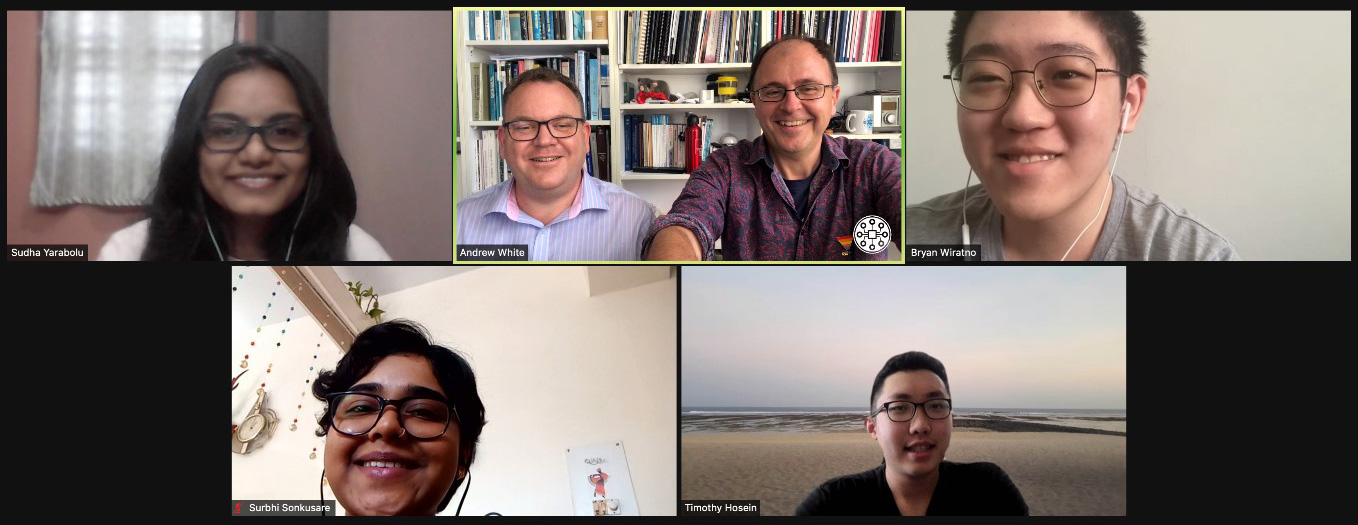Forty students from five Australian universities competed in the Quantum Hackathon: a four-day event that challenged students from all faculties to identify how quantum technologies and computing can benefit society.
The 10 participating teams presented a wide range of ideas, such as the optimisation of home solar systems and quantum-enhanced air traffic control.
The winning team, Qrious Quants, proposed using quantum sensing to help prevent medical misdiagnosis. They demonstrated how quantum technology can enhance DNA sequencing technology to provide more accurate and reliable measurements to improve public health and treatment outcomes.
Jack Feng, a provisional medical student at UQ and member of the Qrious Quants team, shared his experience with UQ Ventures.
“Coming from diverse academic backgrounds, our team embarked on this hackathon with one common goal: to make positive changes to the world by innovating with an open mind,” Mr Feng said.
“We believe quantum-enhanced DNA sensors can improve the accessibility of personalised DNA sequencing, reduce the chance of medical misdiagnosis, and improve public health.”

As the team brainstormed ideas, one member, Bryan Wiratno – an engineering student at the University of Western Australia – suggested that they explore biomedical quantum sensing. From here, they realised that quantum sensing in DNA sequencing has a lot of unexplored potential in reliability and cost effectiveness. Then, with the help of Engineered Quantum Systems (EQUS) mentors, the Qrious Quants substantiated these ideas in a real-world context.
Mr Feng reflected on what he learned during the Hackathon and his hopes for the future.
“Taking part in the Hackathon encouraged me to embrace quantum technology with an open mind and taught me about applying this technology in the real world,” he said.
“Chatting with other participants and hearing their pitches made me appreciate the value of collaborative research in solving problems and creating a more sustainable future.
“Working with a diverse team in a stimulating atmosphere has undoubtedly improved my teamwork and entrepreneurial skills."
“The team and I are now looking to further our idea by working with leading researchers in the field and turning our dream into a reality!”
Watch the Quantum Hackathon Pitch Competition Finals
Qrious Quants pitches at 33:57.
Quantum Hackathon Winners
- 1st place $5000
Bryan Wiratno, Surbhi Sonkusare, Sudha Yarabolu, Timothy Hosein, and Jack Feng
Qrious Quants – DNA sequencing using quantum sensing to avoid medical misdiagnosis.
- 2nd place $2000
Tim Newman, Justin Brown, Sophia Kurianski, and Jacinta May
JusTimPhiChinta – Quantum memory hardware that runs large quantum circuits for longer and produces better results sooner.
- 3rd place $1000
Mitchell Field, Shaun McAnally, and Kyle McLennan
ising_grid – UQ Quantum powered optimisation of a true bidirectional smart grid for home solar batteries and system.



